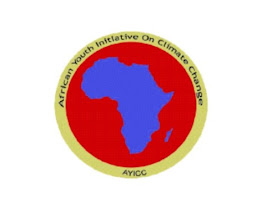ROAD TO PARIS –WHAT KIND OF NEGOTIATIONS DO WE NEED?
By Namboka
Belinda.
Climate change is one of the greatest challenges
the world is facing currently. Although it has been argued to be a natural
phenomenon that man has no power over, there is enough evidence which shows how
human influence exacerbates the problem. We are at that point where we can no
longer afford the luxury to keep debating on whether it is happening or not. We
have to act quickly and decisively to ensure that we come up with adaptation
and mitigation strategies. Most importantly, we have the scientific knowledge
that answers the why and how the phenomenon is taking place. With determination
and persistence, we might not be able to reverse the process but we have the
power to minimize its effects. We still have hope that with the current and future
technologies coupled with favourable policies, we shall be able to blunten the
sharp edges of climate change effects slicing through our lives.
The youth, under the umbrella of Youth
Negotiators for Climate Change-Ethiopia, together with civil society
organisations, the academia and various high profile government representatives
including the minister of environment from France who will be the COP21
president, the minister of environment of Ethiopia and Djibouti, the IPCC chair,
Africa Group of Negotiators representative, the France ambassador to Africa and
Indian ocean on climate change among others, met in Addis Ababa on the “Road to
Paris/What kind of agreement do we need?” conference which took place from 7th
to 9th of April.
Some interesting facts that I learnt
1. Africa
has been able to get 50% of its electricity from renewable sources since 2012
2. Europe
is dedicated to reduce 40% of its emission by 2030
3. The
Green Fund has 100billion dollars per annum
4. There
exists a youth portal where all your innovation, entrepreneurial and policy
questions can be addressed (How Cool?)
5. Egypt
will be the voice of Africa chosen by the AU at COP21
The COP21 conference presents an opportunity
for Africa to negotiate for its citizens a deal that will not only enhance
their adaptation and mitigation capabilities, but also ensure its development
agenda is well catered for. It is therefore mandatory for Africa to address the
next three issues before starting the journey to Paris.
What do we
know?
Impacts of
Climate change to Africa
What do we
want?
We must ensure
it’s aligned to our desire for maximum growth
What space
do we have?
Our strength
as 54 nations
The African Union has decided to approach the
negotiations as the African block with Egypt as our mouth piece. This means
that we need to prepare well and empower Egypt well in advance with confidence
and strategies to approach the negotiating table. It is therefore imperative to
seal all loopholes and strengthen our pillars. Forming a 54 nation block gives
us an edge but as we join the ‘Road to Paris’, we must know:
ž How
coordinated are we?
ž Are
we creating synergies as African countries or are we drawing apart?
ž What
processes are leading to COP21 at national and regional level?
ž What
issues have been raised in the different platforms and are we feeding the
recommendations onto the next platforms?
ž Who
are our partners and who are our opponents at the COP21?
The conference offering a great platform, the
youth especially from AYICC took advantage to voice their most pressing concerns
- addressing unemployment. This was addressed in three categories;
Adaptation,
mitigation and capacity building – Environmental education should
start from childhood; training of young climate scientists especially on disaggregation
of data by age, gender and location in IPCC, training that emphasizes on
efficient social protection mechanisms to build resilience; how to influence national
and regional processes. There was a proposal to create an African Agricultural
Innovation Hub and implementation of Warsaw Mechanism on loss and damage.
Climate
finance and technology transfer- The green climate fund should add a
youth component and accredit local financial institutions that youth can easily
approach; promote efficient technology transfer and incorporate technology
transfer within, carbon trading mechanisms; engender young lawyers to serve as
experts on climate finance planning.
Means of
Implementation, Intended Nationally Determined Contributions (INDCs) and youth
engagement in climate negotiations- Finance
participation of youth in UNFCCC, IPCC, INDCs, UNCCD and other climate policies;
Creation of African Youth Group of Negotiators (AYGN); Common but
differentiated responsibilities be based on historical emissions and have
multilateral financing; emissions be measured according to consumptions rather
than production and distinct between survival and luxury emissions; support for
youth on innovations and creative campaigns against climate change.
For a detailed report on the youth position:Youth Position on Road to Paris
What’s your position as an African youth on
the COP21 negotiations? What would you like addressed? Did we represent your
interests as expected? Give your feedback.

interesting read and good work, Keep it up!
ReplyDeleteExcellent piece! Well articulated and succinct.
ReplyDeleteAlso, it is quite exciting to see how AYICC s engaged in the process, from the grassroots to the international level; way to go!
One point though: the Green Climate Fund thus far has only about US$10 billion in pledges, but it has a target of mobilising US$100 billion per year by 2020 :)
Otherwise, keep up and looking forward to more articles.
Regards,
Nice article moreso, it highlighted the entry-point of environmental education.
ReplyDelete